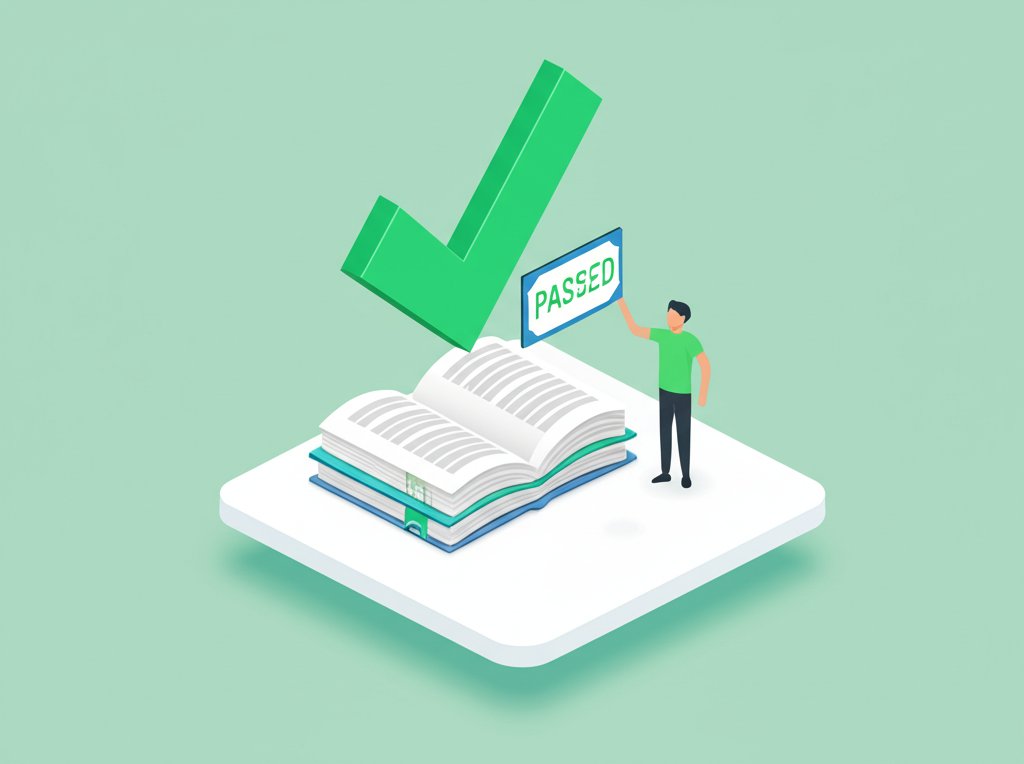Are you ready to embark on a fulfilling journey supporting students and teachers in Kentucky’s vibrant educational system? Becoming a paraeducator, also known as a paraprofessional or instructional assistant, is a rewarding career, and the first significant step is successfully passing the Kentucky Paraeducator Exam. This comprehensive guide is your ultimate resource, designed to equip you with everything you need to know about the Kentucky paraeducator test, from understanding its structure and content to finding the best ky paraeducator practice test resources and confidently achieving the passing score for the ParaPro test (or its Kentucky equivalent, the KPA).
We’ll cut through the confusion, provide actionable strategies, and ensure you’re fully prepared to dominate this crucial assessment and launch your career with confidence.
Understanding the Kentucky Paraeducator Assessment (KPA)
For individuals aspiring to work as paraeducators in Kentucky, the primary assessment is the Kentucky Paraeducator Assessment (KPA). While often serving the same purpose as the national ParaPro Assessment, the KPA is Kentucky’s specific pathway to demonstrating the essential academic skills required for the role. It ensures that all paraeducators possess the foundational knowledge in reading, writing, and mathematics necessary to effectively support student learning.
What is the KPA? Clarifying Kentucky’s Specific Exam
The KPA is a standardized test designed by the Kentucky Department of Education (KDE) to measure the basic academic competencies of prospective paraeducators. It serves as a gatekeeper, ensuring that individuals entering the profession have the requisite skills to assist teachers, tutor students, and help manage classroom environments. Unlike some states that exclusively use the national ParaPro, Kentucky has its own specific assessment, the KPA, though the content and format are often highly comparable to general paraeducator tests. Always refer to official KDE guidelines for the most current and specific information.
KPA Content Areas: Reading, Writing, and Mathematics
The Kentucky paraeducator test evaluates your proficiency across three core academic domains:
- Reading: This section assesses your ability to comprehend written passages, identify main ideas, understand vocabulary in context, and interpret various forms of text (e.g., educational materials, student assignments, school policies). You’ll need to demonstrate strong reading comprehension skills to assist students with their assignments and understand instructional materials.
- Writing: The writing component tests your understanding of grammar, punctuation, sentence structure, and basic composition skills. Expect questions on sentence correction, identifying errors, and potentially constructing short responses that demonstrate clear and coherent communication. Effective written communication is vital for recording observations, preparing simple reports, and communicating with teachers.
- Mathematics: This section covers fundamental mathematical concepts, including arithmetic (addition, subtraction, multiplication, division), basic algebra, geometry, and problem-solving. While you won’t be solving advanced calculus problems, you’ll need to demonstrate the ability to assist students with homework, understand simple data, and manage classroom resources that may involve numerical tasks.
Exam Format, Question Types, and Time Limits
The KPA is typically a computer-based test, often consisting of multiple-choice questions across the three content areas. The exact number of questions and the time limit can vary, but generally, paraeducator exams feature around 90-100 questions to be completed within a 2-hour timeframe. It’s crucial to confirm the precise format, question count, and time allowance with the Kentucky Department of Education or your local school district offering the exam. Understanding the structure beforehand is a key step in developing an effective kentucky paraeducator exam practice test strategy.
Eligibility Requirements for Kentucky Paraeducators
Before you can even take the paraeducator exam KY, you must meet specific eligibility criteria set forth by the Kentucky Department of Education. These generally include:
- High School Diploma or GED: This is a fundamental requirement for all paraeducator positions in Kentucky.
- Age Requirement: Candidates must typically be at least 18 years old.
- Background Check: All school employees, including paraeducators, must pass a comprehensive background check.
- Additional District Requirements: Some individual school districts in Kentucky may have additional requirements, so always check with the specific district where you intend to apply.
Meeting these prerequisites ensures you are qualified to take the KPA and proceed with your application process.
Kentucky Paraeducator Exam Practice Test: Your Path to Success

Preparation is the cornerstone of success for any standardized test, and the Kentucky Paraeducator Exam is no exception. Engaging with high-quality practice materials and adopting smart study habits will significantly boost your confidence and performance.
Why Practice Tests are Essential for the KY Paraeducator Test
Think of a ky paraeducator practice test as a dress rehearsal for the real performance. Here’s why they are invaluable:
- Familiarization: Practice tests expose you to the actual format, question styles, and pacing of the KPA. This reduces anxiety on exam day.
- Identify Strengths and Weaknesses: By reviewing your practice test results, you’ll pinpoint areas where you excel and, more importantly, subjects where you need to focus your study efforts.
- Time Management: Simulating the exam conditions helps you learn to allocate your time effectively across sections, preventing you from spending too long on any single question.
- Build Endurance: Sitting for a 2-hour exam requires mental stamina. Regular practice tests help build this endurance.
- Boost Confidence: Consistently performing well on practice tests can significantly increase your self-assurance for the actual kentucky paraeducator test.
Finding High-Quality KY Paraeducator Practice Test Resources
While specific official KPA practice tests might be limited, many resources designed for general paraeducator or ParaPro exams are highly relevant due to the similar content areas. Here’s where to look:
- Kentucky Department of Education (KDE) Website: Start here for any official KPA study guides or sample questions that may be released directly by the state. This is always the most authoritative source.
- Educational Testing Service (ETS) ParaPro Resources: ETS administers the national ParaPro Assessment, and their official study guides and practice tests (available on their website) are excellent resources. Given the KPA’s similar content, these materials are highly applicable to preparing for the paraeducator exam KY.
- Online Education Platforms: Numerous websites and apps offer free and paid paraeducator practice tests. Search specifically for “paraeducator practice test” or “ParaPro practice test.” Look for platforms that provide detailed answer explanations.
- Local School Districts: Your prospective school district might offer or recommend specific study materials or workshops for the KPA. Inquire with their HR or professional development departments.
When choosing a kentucky paraeducator exam practice test, prioritize those that mirror the KPA’s structure (multiple-choice, timed) and cover the core subjects of reading, writing, and mathematics comprehensively.
Effective Strategies for Using Practice Tests
Simply taking a practice test isn’t enough; you need to use them strategically:
- Simulate Exam Conditions: Take practice tests in a quiet environment, without distractions, and adhere strictly to the time limit. This builds realistic pressure.
- Review Every Answer: Don’t just look at your score. Go back through every question, even those you answered correctly. Understand why an answer is right or wrong.
- Analyze Performance by Section: Most practice tests will show your performance by content area. Use this data to identify your weakest subjects and dedicate more study time there.
- Create a Study Plan: Based on your practice test analysis, create a targeted study plan. For example, if math is a struggle, allocate more time to reviewing fractions and percentages.
- Re-Test and Track Progress: Take multiple practice tests over time, and track your scores. This allows you to see your improvement and identify if your study efforts are paying off.
- Focus on Foundational Skills: If you’re consistently struggling with certain types of questions (e.g., reading comprehension passages), consider going back to basics with general adult literacy or math refreshers.
Beyond Practice: Comprehensive Study Guides & Materials
While practice tests are vital, they should be supplemented with thorough content review.
- Targeted Study Guides: Purchase or find free study guides specifically designed for paraeducator exams. These guides typically break down each subject area, offering explanations and examples.
- Basic Skills Refreshers: Books or online courses focusing on fundamental reading, writing, and math skills can be incredibly helpful, especially if it’s been a while since you’ve been in a formal academic setting.
- Flashcards: For vocabulary, grammar rules, or math formulas, flashcards are an excellent tool for memorization and quick review.
- Online Tutorials and Videos: Websites like Khan Academy offer free lessons on a wide range of academic subjects, perfect for brushing up on specific math concepts or grammar rules.
Passing Score for the Kentucky Paraeducator Test: What You Need to Know
Understanding the passing score for the Kentucky Paraeducator Test is crucial for setting your study goals. While the national ParaPro Assessment typically has a passing score range (often between 450-466 scaled points), Kentucky sets its own specific requirement for the KPA.
Official KPA Passing Score for Kentucky
The Kentucky Department of Education (KDE) officially sets the passing score for the paraeducator exam KY. This score can be subject to review or change, so it’s paramount to confirm the most current requirement directly from the KDE website or your prospective school district’s HR department. Historically, passing scores for paraeducator exams typically fall within a scaled score range, but for the KPA, you will need to meet Kentucky’s specific benchmark.
Always verify the exact current passing score with official Kentucky Department of Education resources.
Interpreting Your KY Paraeducator Test Scores
After taking the KPA, you will receive a score report. This report typically provides:
- Total Scaled Score: This is your overall score, usually presented on a scale (e.g., 420-500 or similar). This is the score that determines if you’ve met the state’s passing requirement.
- Content Area Subscores: The report often breaks down your performance in each of the three tested areas (Reading, Writing, and Math). This is incredibly useful for understanding your strengths and weaknesses, especially if you need to retake the exam.
- Performance Indicators: Some reports might include percentile ranks or other indicators showing how your performance compares to other test-takers, though the primary focus for certification is meeting the minimum passing score.
Remember, your scaled score is not simply the number of questions you answered correctly. It’s a conversion that accounts for the difficulty of the questions, making scores comparable across different test administrations.
What Happens If You Don’t Pass? (Retake Policy)
If you don’t achieve the passing score for the Kentucky Paraeducator Test on your first attempt, don’t be discouraged! Most test administrators, including those for the KPA, have a retake policy.
- Waiting Period: There is usually a mandatory waiting period (e.g., 28 or 30 days) before you can retake the exam. This period is designed to give you time to study and improve.
- Retake Limits: Some policies may limit the number of times you can retake the test within a certain timeframe.
- Focus on Weaknesses: Use your score report to pinpoint the areas where you need the most improvement. Focus your study efforts there before retesting.
- Re-registration: You will need to re-register and pay the exam fee again for each retake.
View a non-passing score as an opportunity to strengthen your knowledge and come back even more prepared. Many successful paraeducators needed multiple attempts to reach their goal.
The Indispensable Role of a Paraeducator in Kentucky Schools

Beyond passing the kentucky paraeducator test, it’s important to understand the profound impact and diverse responsibilities that come with being a paraeducator in Kentucky’s educational landscape. Paraeducators are truly unsung heroes of the classroom, working hand-in-hand with teachers to create inclusive and effective learning environments for all students.
Core Duties and Responsibilities in KY Classrooms
The daily tasks of a paraeducator are varied and dynamic, adapting to the specific needs of students, teachers, and school settings across Kentucky. Key responsibilities include:
- Instructional Support: This is often the primary role. Paraeducators assist with lesson delivery, work with small groups, provide one-on-one tutoring, and reinforce concepts taught by the teacher. They help clarify instructions, adapt materials, and monitor student progress.
- Classroom Management: Paraeducators help maintain a positive and orderly learning environment, assisting with transitions between activities, supervising students during independent work, lunch, or recess, and helping to manage student behavior according to established plans.
- Special Needs Assistance: A significant portion of paraeducators provide crucial support to students with diverse learning, physical, or behavioral challenges. This might involve assisting with mobility, communication devices, implementing individualized education programs (IEPs), or providing specialized instruction under the teacher’s direction.
- Administrative and Logistical Tasks: They often help with preparing classroom materials, organizing supplies, taking attendance, recording data, and communicating with parents under the teacher’s guidance.
- Communication Liaison: Paraeducators often act as a vital link between teachers, students, and sometimes families, sharing observations about student progress or concerns.
These duties underscore the need for strong foundational skills in reading, writing, and math, which is precisely why the kentucky paraeducator exam practice test is so vital.
Impact on Students and Teachers Across Kentucky
The presence of well-trained paraeducators profoundly benefits the entire school community in Kentucky:
- Enhanced Student Learning: Paraeducators provide individualized attention that teachers, with large class sizes, might not be able to offer. This targeted support helps students grasp complex concepts, stay on track, and ultimately achieve better academic outcomes. Research consistently shows a positive correlation between effective paraeducator support and improved student performance, especially for students with special needs.
- Increased Teacher Effectiveness: By entrusting routine instructional and management tasks to paraeducators, teachers are freed up to focus on lesson planning, curriculum development, and addressing the most complex instructional needs of their students. This partnership makes teachers more efficient and less overwhelmed.
- Promoting Inclusion: Paraeducators are instrumental in making inclusive education a reality. They help students with disabilities participate more fully in general education classrooms, providing the necessary accommodations and support systems.
- Safer and More Organized Classrooms: Their extra set of eyes and hands helps maintain a more structured and secure learning environment, reducing disruptions and ensuring smooth operations.
Career Growth and Opportunities for KY Paraeducators
A career as a paraeducator in Kentucky is not just a job; it’s a foundation for growth:
- Specialization: Paraeducators can specialize in working with specific populations, such as students with autism, those learning English as a second language (ESL), or students in particular academic subjects.
- Professional Development: Many Kentucky school districts offer ongoing training and professional development opportunities to enhance skills and knowledge.
- Pathway to Teaching: For many, being a paraeducator is an excellent stepping stone to becoming a certified teacher. The hands-on experience gained is invaluable and provides a clear understanding of the teaching profession. Some colleges even offer programs tailored for paraeducators to transition into teaching roles.
- Leadership Roles: Experienced paraeducators may take on mentoring roles for new staff or become lead paraeducators within their schools.
The paraeducator exam KY is merely the beginning of a dynamic and impactful career that strengthens Kentucky’s schools from the ground up.
Conclusion: Your Journey to Becoming a Kentucky Paraeducator
The path to becoming a certified paraeducator in Kentucky is clear and achievable. By thoroughly understanding the Kentucky Paraeducator Assessment (KPA), utilizing effective kentucky paraeducator exam practice test strategies, and knowing the official passing score for the Kentucky Paraeducator Test, you are well-positioned for success. Remember, this exam is a gateway to a deeply rewarding career where you will directly impact the lives of countless students and contribute significantly to Kentucky’s educational future.
Start preparing today. Dedicate time to reviewing the core subjects, practice consistently, and approach the exam with confidence. Your hard work will open doors to a career filled with purpose and the satisfaction of knowing you are making a real difference in your community. Good luck!
Frequently Asked Questions (FAQ) about the Kentucky Paraeducator Exam
What is the Kentucky Paraeducator Exam?
The Kentucky Paraeducator Exam (KPA) is a standardized test required by the Kentucky Department of Education (KDE) for individuals seeking employment as paraeducators (also known as instructional assistants or paraprofessionals) in Kentucky public schools. It assesses basic skills in reading, writing, and mathematics.
Is the KPA the same as the ParaPro Test?
While the KPA covers similar academic content to the national ParaPro Assessment, it is Kentucky’s specific state-mandated exam. Always refer to official KDE guidelines for the precise requirements and official passing scores for the KPA.
How do I register for the Kentucky Paraeducator Test?
Registration procedures can vary by school district. Typically, you would contact the human resources department of the school district where you plan to work. They will provide information on test dates, locations, fees, and the registration process for the paraeducator exam KY.
What content is covered on the Kentucky Paraeducator Assessment?
The KPA assesses foundational skills in three main areas: Reading (comprehension, vocabulary), Writing (grammar, punctuation, sentence structure), and Mathematics (arithmetic, basic algebra, geometry, problem-solving).
What is the passing score for the Kentucky Paraeducator Test?
The official passing score for the Kentucky Paraeducator Test is set by the Kentucky Department of Education. This score can be subject to change, so it is essential to verify the current requirement directly with the KDE or your local school district’s HR department. This score is usually a scaled score.
Where can I find a reliable Kentucky Paraeducator Exam Practice Test?
While official KPA-specific practice tests might be limited, reliable resources for the national ParaPro Assessment (from ETS) are highly relevant due to content similarities. Search for “ParaPro practice test” or “paraeducator practice test” on reputable educational websites. Also, check the Kentucky Department of Education website for any state-specific practice materials.
How long is the Kentucky Paraeducator Exam?
The typical duration for a paraeducator exam is around 2 hours, with approximately 90-100 multiple-choice questions. However, confirm the exact time limit and question count with your specific test administrator or the Kentucky Department of Education.
What happens if I fail the KY Paraeducator Test?
If you do not achieve the passing score for the Kentucky Paraeducator Test, you are generally allowed to retake it after a mandatory waiting period (e.g., 28-30 days). Use your score report to identify areas for improvement and focus your study efforts before retesting.
Do I need a specific degree to be a paraeducator in Kentucky?
No, a specific degree is not typically required. The primary educational requirement is a high school diploma or GED equivalent, along with passing the Kentucky Paraeducator Assessment (KPA).
How long are my KPA scores valid in Kentucky?
The validity period for KPA scores is generally determined by the Kentucky Department of Education or the employing school district. It’s usually a long period (e.g., ten years), but always confirm the current policy if you plan to use older scores.











2 thoughts on “Kentucky Paraeducator Exam: Practice Test & Pass Score”
Comments are closed.